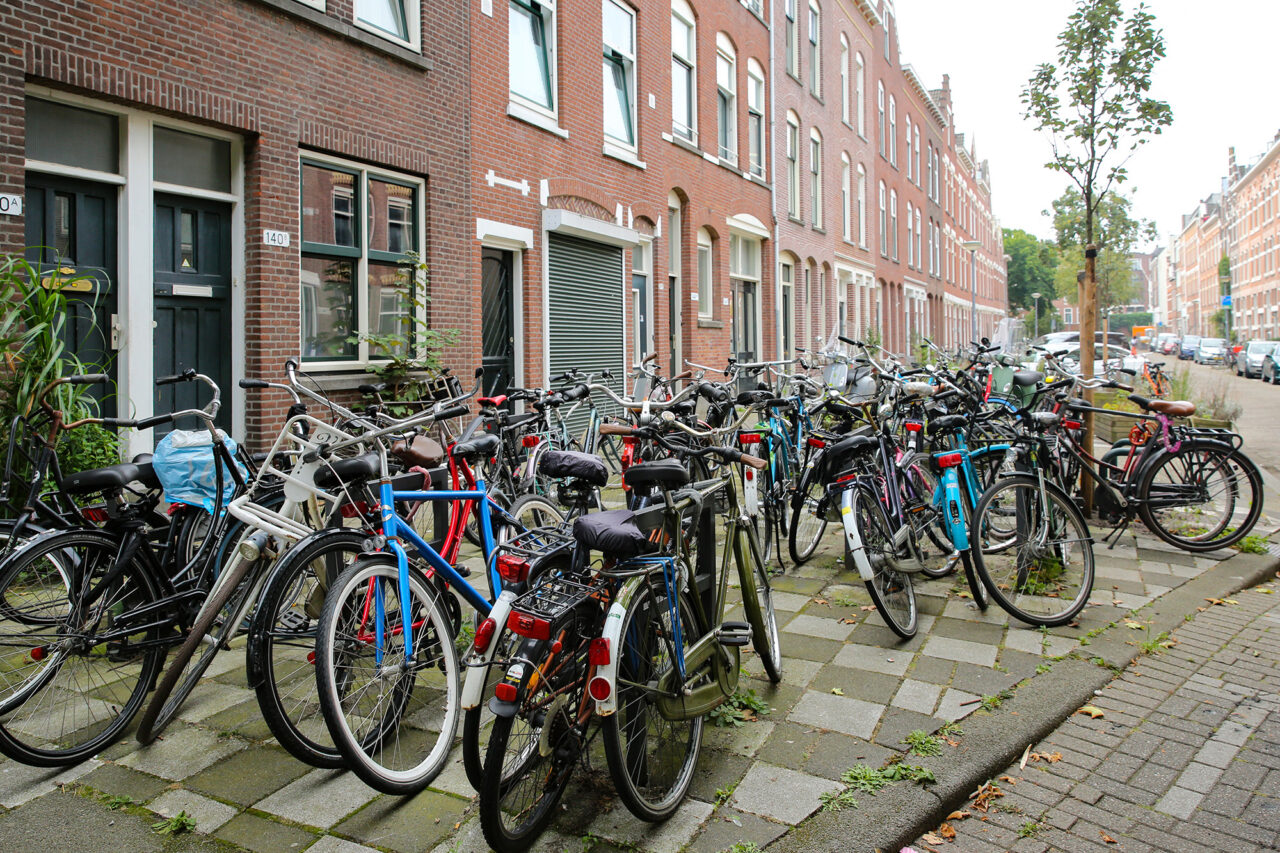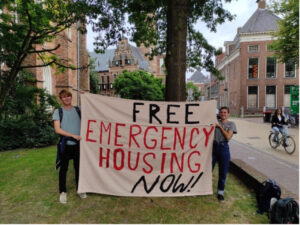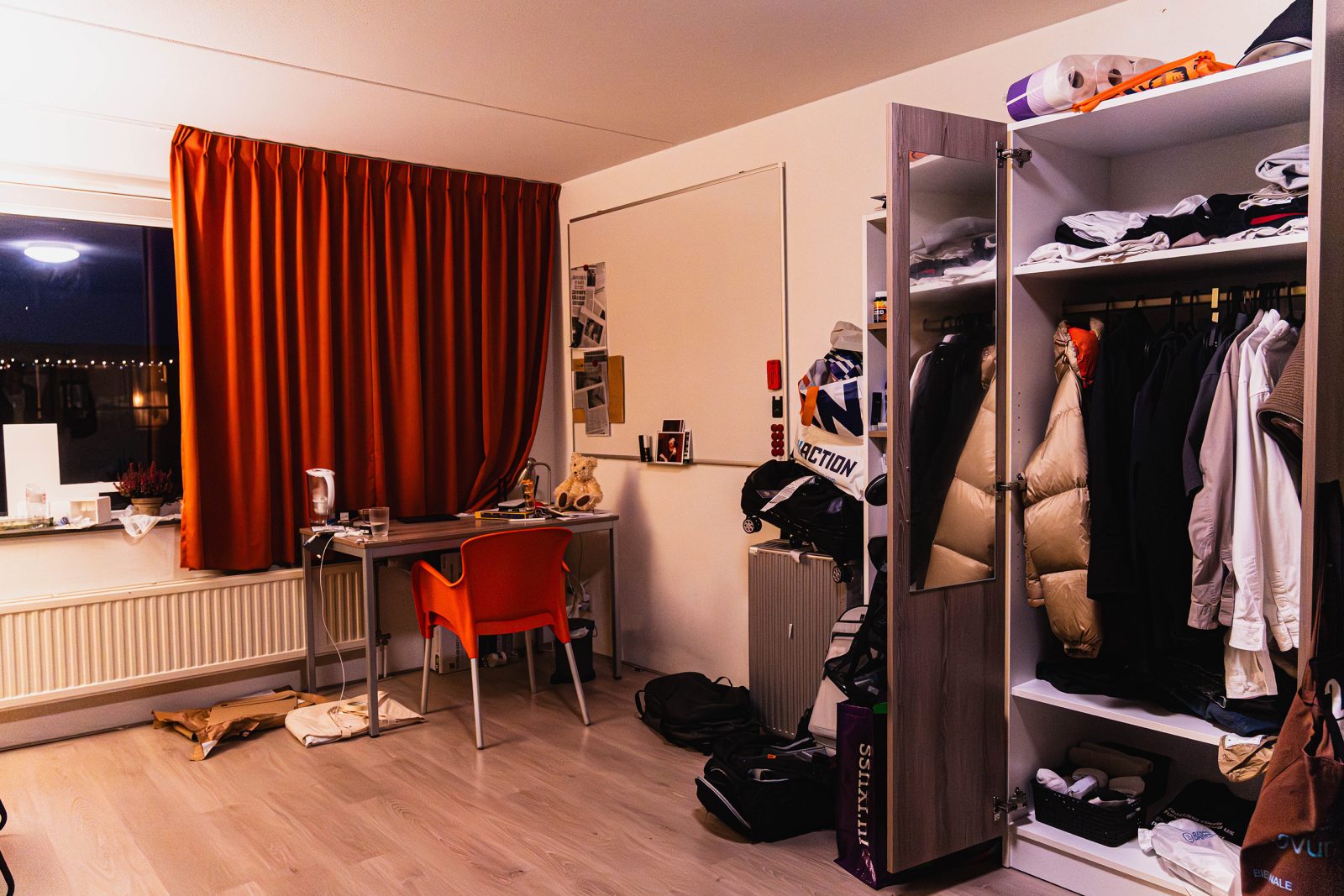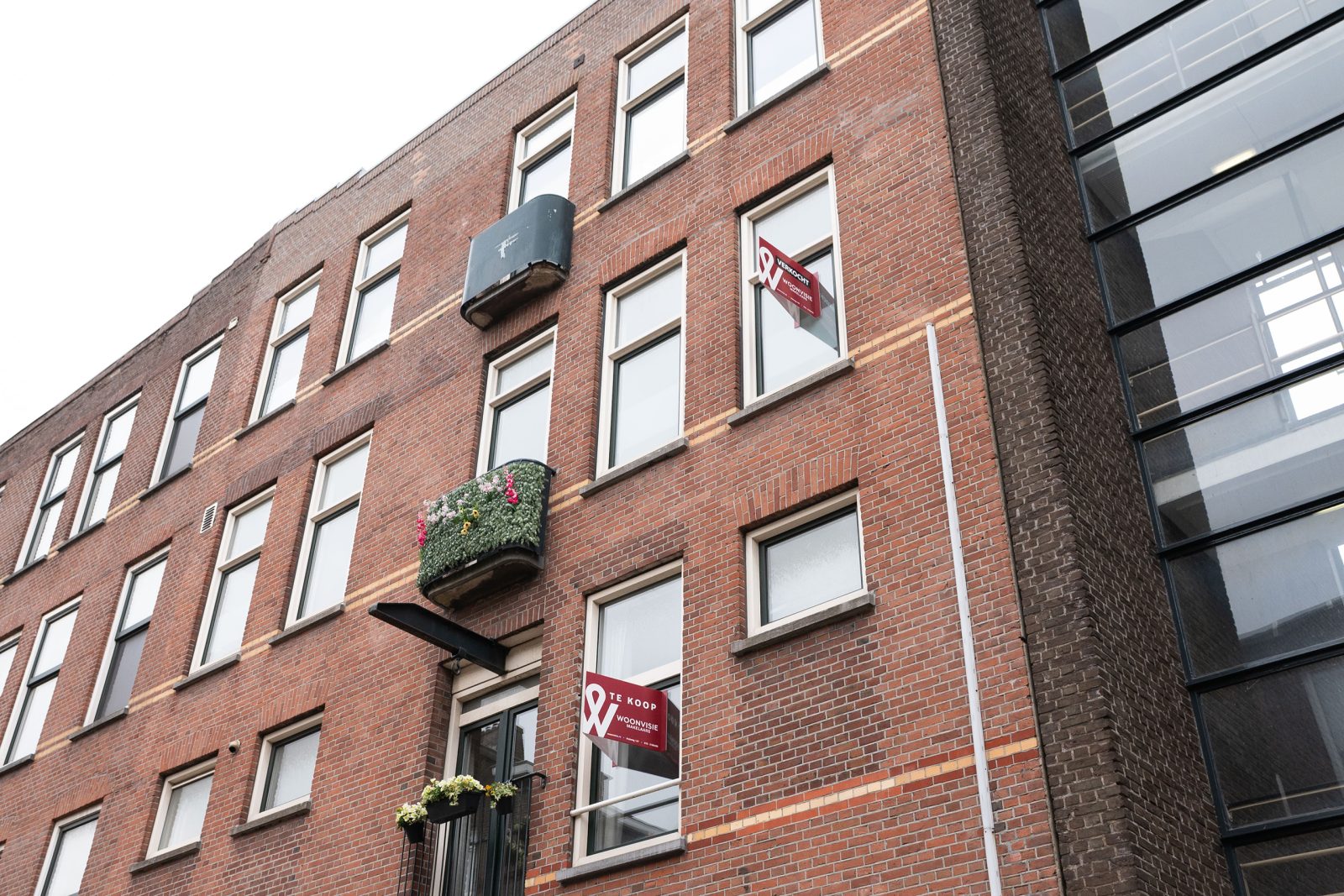Rotterdam’s new housing policy is ‘putting student housing under even greater pressure’
They’ve been around in other cities for a while – rules stipulating that landlords wishing to house more than three students in one house require a permit to do so. According to Rotterdam councillors, these rules were implemented to stop unscrupulous landlords (‘slumlords’) from exploiting students and also to stop students from causing inconvenience to their neighbours. However, student representatives believe that the new rules will result in even fewer rooms being available to students, even though the need for such rooms has never been greater.

Image by: Sanne van der Most
Nathaniel Germain of the newly established student union STUUR Rotterdam believes that the Rotterdam municipal government has missed the mark completely with the new rules, which stipulate that if more than three persons live in one house, a permit is now required, as of 1 July. Furthermore, no permits will be issued for new such arrangements during the current academic year. The municipal government says that the rules were implemented in order to reduce the amount of inconvenience caused by students and also to somewhat halt the increase in poorly maintained houses in the private rented sector.
Even though Germain agrees the poor living conditions in the private rented market are problematic, he thinks that the rule making it harder to split up houses into student bedsits is taking things a step too far. “This means there will be even more pressure on student housing associations, even though there is already a shortage [of student housing]. If politicians don’t come up with an adequate solution to make up for this restriction, students’ wellbeing will be on the line.”
Malpractice
Germain pointed to two major problems faced by Rotterdam students. First, the waiting lists for social housing are long. On average, people seeking to rent a room from Stadswonen Rotterdam have to wait 15 months before being offered one. For an apartment or studio apartment, the average wait is a whopping 47 months. If you can’t wait that long, you will encounter a second problem: the private rented sector.
“Which comes with lots of horror stories of its own,” says Germain. “I hear absolutely horrible stories from my fellow students. Landlords who claim that they should simply accept vermin as a part of life since ‘we can’t get rid of it anyway’, and even a student who didn’t have a lock on his front door and so got into the habit of putting crates of beer behind the door as a stopgap solution against burglary.” He goes on to say that there are many laws prohibiting this sort of thing, but that students don’t seem to be very keen to contact the rent tribunal. “I get that it’s terrifying to take on your landlord or take him to court, because you’re afraid you may end up on the street. But in actual fact, you’re protected against that sort of thing. This duty to obtain a permit will not adequately stop such horror stories in the private sector, because if your landlord fails to get a permit now, you may actually end up on the street.”
Read more
-

Broken window and landlord not cooperating? This is what you can do as tenant
Gepubliceerd op:Article type: Video-
EM TV
-
Increasing room shortage
Read more
-

Rooms are scarce, but no extra money for student accommodation
Gepubliceerd op:-
Housing
-
For its part, Stadswonen, which is part of the Woonstad Rotterdam housing association, also expects the duty to obtain a permit and the temporary non-issuing of permits to cause even more problems on their end. The student housing association has seen the student bedsit shortage increase over the years, says a spokesperson. In addition, the number of students looking for housing is expected to increase in the coming years. On the other hand, Stadswonen could tell in the last few years that the fact that many apartments were being converted into multiple bedsits was causing a lot of inconvenience, ‘so it makes perfect sense that the municipal authorities are taking the problem seriously, at the request of many Rotterdammers’.
Municipal politicians are also aware that there is not enough student housing to go around. “It’s a dire situation,” says councillor Jan-Willem Verheij, who represents the liberal party, VVD. “In the 2018 coalition agreement we stated that two thousand student houses must be built, but actually, we’re going to have to do better than that.”
Verheij believes that the new rules regarding splitting homes and apartments into student bedsits involve complex considerations, because more student bedsits mean fewer homes (and less pleasant homes) for young families and others. “We’re always trying to strike the right balance,” says Verheij. “If we do something that benefits one group, the other group will complain, and vice versa. Even if we give it our all, we won’t be able to keep everyone happy.”
Monitoring
This view is shared by many councillors, regardless of which side of the political spectrum they are on. Councillor Astrid Kockelkoren, a GroenLinks representative, feels that the new rules regarding the splitting up of houses and apartments are useful, because they help strike the right balance between students’ interests and other groups’ interests. “This will allow us to monitor the quality of housing, and take a good look at where houses can and can’t be divided into rooms.”
She, too, is concerned about the overly expensive and small rooms rented by students, and about the lack of rooms, but she does not believe that the duty to obtain a permit will cause many problems. Something she does believe constitutes a major problem is the fact that this is a revenue model that negatively affects the availability and affordability of housing for young people. “This is why we’ve tried hard to ensure that when new buildings are erected, as with the new zoning plan for the Woudestein campus, the housing projects do not end up being awarded to commercial parties. That did happen in the past.”
Vulnerable group
Nathaniel Germain of STUUR Rotterdam agrees that prioritising housing associations is one of the solutions, but thinks it will take more than that. For instance, he believes that slumlords must be tackled harder by means of existing regulations, while students must receive more support when they decide to file a case with the rent tribunal. “That would be much better than these new rules that make it unattractive for landlords to lease to students. Students are vulnerable, which is often forgotten when policies are drawn up. So now that the municipal elections will be held soon, we have one message: this needs to change.”
De redactie
Latest news
-

Turndown service
Gepubliceerd op:-
Column
-
-

Education Council criticises ‘one-sided’ view of student wellbeing
Gepubliceerd op:-
Student life
-
-

First Philosophy: a philosophy podcast for beginners and advanced listeners
Gepubliceerd op:-
Education
-
Comments
Comments are closed.
Read more in housing
-

Student housing Toepad not scrapped after all, completion expected in 2027
Gepubliceerd op:-
Housing
-
-

Students without municipal registration. ‘I work off the books in a restaurant’
Gepubliceerd op:-
Housing
-
-

Mass exodus of student houses from the housing market
Gepubliceerd op:-
Housing
-







